The seventh leg of our 10-part tour of major events shaping Thailand over the past 50 years begins in 1997. The July issue covered 1992-1996.
1997 was the year Chulabhorn Research Institute was initiated by Her Royal Highness Princess Chulabhorn to conduct research in biomedicine and biochemistry. American Pacific International School in Chiang Mai was established and the Constitutional Court was founded. The 88-storey, 303-meter Baiyoke Tower II was completed, making it the tallest building in Thailand. Bangkok International Trade and Exhibition Centre (BITEC) opened in Bang Na district of Bangkok, as did the CentralPlaza shopping center on Rama 3 Road and Emporium luxury shopping mall on Sukhumvit Road.
And 1997 was also the year Thailand was ground zero for a devastating economic crisis that rocked East Asia and spilled over to Eastern Europe and South America. For details on the crisis, see The BigChilli January 2018 issue: ‘Tom Yum Kung’ financial crisis that shocked the world and ended Thailand’s status as an Asian Tiger economy. https://issuu.com/thebigchilli/docs/the_bigchilli_january_2018
And 1997 was also the year Thailand was ground zero for a devastating economic crisis that rocked East Asia and spilled over to Eastern Europe and South America. For details on the crisis, see The BigChilli January 2018 issue: ‘Tom Yum Kung’ financial crisis that shocked the world and ended Thailand’s status as an Asian Tiger economy. https://issuu.com/thebigchilli/docs/the_bigchilli_january_2018
| January • Princess Mother Memorial Park, also called Suan Somdet Ya, was opened on January 21 by His Majesty King Bhumibol Adulyadej in remembrance of his mother, Princess Srinagarindra. Operated by the Bangkok Metropolitan Administration, the park is located in Khlong San district of Bangkok and contains gardens and a reproduction of the royal mother’s home, twoexhibition halls showing memorabilia of the royal family and a pavilion with a statue of the princess. • A crowd of over 3,000 enthusiastic film fans turned out to mingle with stars Sylvester Stallone, Bruce Willis, Wesley Snipes, Cindy Crawford, Jean Claude Van Damme and Jackie Chan at the opening of Planet Hollywood restaurant in Bangkok. • A Karen armed group crossed into Thailand from Burma and burned down two refugee camps in Tak province, leaving about 10,000 Karen refugees homeless. The group of about 300 fighters attempted to destroy a third camp but was prevented from doing so by the Thai Border Patrol Police. The three coordinated attacks on Thai soil were conducted by the pro-Burmese government Democratic Karen Buddhist Army, reportedly with the blessings of Burmese troops stationed along the border. |
| February • Tiger Woods won the Asian Honda Classic golf tournament at the Thai Country Club in Chacheongsao province. It was Woods’ fourth victory in 12 tournaments played since he turned professional in August 1996. The US-born Woods has a Thai mother. • Police arrested three men on charges of collaborating to embezzle 600 million baht from Bangkok Bank of Commerce (BBC). One of those arrested was Krikkiat Jalichandra, former president of BBC. April • Prime Minister Chavalit Yongchaiyudh branded Pattaya as Thailand’s ‘greatest source of evil’. He said prostitution, drug dealing, money-laundering and other pernicious activities were prevalent there and needed to be tackled to prevent the corruption of Thai society. Chavalit disclosed that he had ‘sneaked’ into the beach resort only to be confronted with all forms of vice. He also said that Pattaya was known as a place where drug dealers laundered tens of billions of baht and expressed the concern that they might use their profits to bring about the collapse of society. September • The Transport and Communications Ministry announced that after six years of delays the US$3.3 billion Hopewell project was to be scrapped. The cabinet cancelled the contract after growing concerns Hong Kong-based Hopewell Holdings would not be able to deliver the Bangkok Elevated Road and Train System in a timely fashion. Hopewell initially denied the project had been scrapped, saying it had not received any official notice from the Thai government. Hopewell chairman Sir Gordon Wu said the company had fulfilled its commitment to construct 60 km of roads and rails. The abandonment of the project left over one thousand concrete pillars standing for no apparent purpose along the planned routes. The Bangkok Post described the spectacle as Bangkok’s version of Stonehenge. |
October
• The 1997 Constitution was enacted on October 11, replacing the 1991
Constitution. Hailed as a landmark for democracy in Thailand, the much-loved 1997 Constitution was repealed by the Council for Democratic Reform on September 16, 2006, following a successful military coup. It was replaced by the 2006 Constitution on October 1 of that year.
• A total of 21,347 unclaimed corpses were loaded by charity workers into giant bamboo baskets and transported by vans to a temporary burial site about 50 km from Bangkok. The decomposed remains were mostly those of victims of road accidents and homeless people whose relatives couldn’t be found.
• The 1997 Constitution was enacted on October 11, replacing the 1991
Constitution. Hailed as a landmark for democracy in Thailand, the much-loved 1997 Constitution was repealed by the Council for Democratic Reform on September 16, 2006, following a successful military coup. It was replaced by the 2006 Constitution on October 1 of that year.
• A total of 21,347 unclaimed corpses were loaded by charity workers into giant bamboo baskets and transported by vans to a temporary burial site about 50 km from Bangkok. The decomposed remains were mostly those of victims of road accidents and homeless people whose relatives couldn’t be found.
1998 saw the founding of conglomerate BEC-TERO Entertainment Company and the opening of the first Starbucks coffee in Bangkok. Tesco Lotus also came to Thailand and Angel Airlines took flight with its headquarters in Bangkok. Harrow International School was opened in Don Muang
district and the giant IMPACT Arena, Exhibition and Convention Center was completed in Muang Thong Thani. The Rajamangala National Stadium in Bangkapi district of Bangkok was opened to the public, as was Thammasat Stadium in Pathum Thani.
district and the giant IMPACT Arena, Exhibition and Convention Center was completed in Muang Thong Thani. The Rajamangala National Stadium in Bangkapi district of Bangkok was opened to the public, as was Thammasat Stadium in Pathum Thani.
| January • The Thai baht fell to an all-time low of 56.67 to the dollar. Currency dealers said the collapse of the baht was precipitated by the failure of Finance One, Thailand’s largest finance company, and the continuing demand for US currency. February • A transvestite boxer created a stir at Lumpini Stadium by refusing to strip at a weigh-in as required by regulations. Crying profoundly, Parinya Charoenphol, nicknamed Toom, also known by the stage name Parinta Kiatbusaba said: “The rule is unacceptable. How can I strip in public?” Parinya had made quite a name from bouts in the provinces before being offered the big fight in Bangkok. The officials were won over by Parinya’s remonstrations and allowed the 16-year-old boxer to wear underwear for the weigh-in. Parinya won 18 of 22 fights, including the one at Lumpini Stadium that night. • Over 20,000 people flocked to three auction houses to bid for the first 535 passenger cars, pick-up trucks and vans put up for sale by the Financial Restructuring Authority. Among the bargains were 30 Mercedes-Benz, three BMWs and one Ferrari. |
March
• Police launched an investigation into a nightclub brawl that involved Wanchalerm Yubamrung, the son of Muan Chon party leader Chalerm Yubamrung. Witnesses said Wanchalerm took part in an assault on a man, his son and a woman during a melee at Future Pub in the Chao Phraya Park Hotel in Bangkok. Wanchalerm, who denied involvement in the brawl at Future Pub, had previously been implicated in the April 1997 assault of a man in Phuket in April 1997.Criminal charges stemming from that incident against Wanchalerm and four other men were dropped in June due to insufficient evidence.
April
• About 10,000 people visited Lumpini Park to glimpse an ancient relic of the Lord Buddha. The relic – a tooth believed to have been salvaged from the Buddha’s ashes after his cremation in India more than 2,500 years ago ‒ went on public display during a transit stop between India and Taiwan.
• Prime Minister Chuan Leekpai responded to the death of Cambodia despot Pol Pot by saying that the Thai government would cooperate with the world community in bringing the remaining Khmer Rouge leaders to justice for genocide. Pol Pot, the ruthless ‘brother number one’ of the Khmer Rouge, reportedly died of heart failure.
June
• Thailand became the first Asian country to approve the sale of Viagra. The Food and Drug Administration approved the sale in principle but imposed some restrictions, specifying that the drug could only be sold in hospitals with prescriptions written by medical specialists in the fields of neurology, psychiatry, cardiology or endocrinology, all of which may have a link to erectile dysfunction. Pfizer Pharmaceuticals in Thailand said the drug was expected to sell for at least 400 baht a pill.
• Police launched an investigation into a nightclub brawl that involved Wanchalerm Yubamrung, the son of Muan Chon party leader Chalerm Yubamrung. Witnesses said Wanchalerm took part in an assault on a man, his son and a woman during a melee at Future Pub in the Chao Phraya Park Hotel in Bangkok. Wanchalerm, who denied involvement in the brawl at Future Pub, had previously been implicated in the April 1997 assault of a man in Phuket in April 1997.Criminal charges stemming from that incident against Wanchalerm and four other men were dropped in June due to insufficient evidence.
April
• About 10,000 people visited Lumpini Park to glimpse an ancient relic of the Lord Buddha. The relic – a tooth believed to have been salvaged from the Buddha’s ashes after his cremation in India more than 2,500 years ago ‒ went on public display during a transit stop between India and Taiwan.
• Prime Minister Chuan Leekpai responded to the death of Cambodia despot Pol Pot by saying that the Thai government would cooperate with the world community in bringing the remaining Khmer Rouge leaders to justice for genocide. Pol Pot, the ruthless ‘brother number one’ of the Khmer Rouge, reportedly died of heart failure.
June
• Thailand became the first Asian country to approve the sale of Viagra. The Food and Drug Administration approved the sale in principle but imposed some restrictions, specifying that the drug could only be sold in hospitals with prescriptions written by medical specialists in the fields of neurology, psychiatry, cardiology or endocrinology, all of which may have a link to erectile dysfunction. Pfizer Pharmaceuticals in Thailand said the drug was expected to sell for at least 400 baht a pill.
July
• Bangkok city police started to get tough with people who were smoking in public places including malls, supermarkets, government offices and buses. Violation of tobacco control laws was made punishable by a fine of 2,000 baht. Police Major General Jongrak Judhanond said after talks with health officials that police would also be checking air-conditioned restaurants that had not set aside smoking areas.
• Telecommunications entrepreneur Thaksin Shinawatra formed Thai Rak Thai (Thais Love Thais) Party (TRT) on July 14. The party’s populist platform appealed to indebted farmers who were in dire straits as a result of the ongoing financial crisis. Promising a strong economic recovery if they came to power, the party also reached out to rural villagers and struggling business owners.
• AutoAlliance Thailand (AAT), a joint venture automobile assembly firm co-owned by Ford Motor Company and Mazda Motor Corporation, began production in Rayong province. The grand opening ceremony on July 1 was attended by PM Chuan. AAT builds compact pick-up trucks and SUVs primarily for Southeast Asian markets.
September
• The police department began a crackdown on Thailand’s first international film festival. Police demanded that all film entrees be viewed by a censorship board before screening. Bugis Street, a film that focused on transvestites in Singapore’s notorious red-light district in 1960, had already been banned for pornography. Thai director and screenwriter Ing Kanjanavanit commented: “It’s ridiculous that Thailand has one of the freest presses in Asia but Thai cinema is one of the most censored in the world.”
• The 1998 Asian Games took place in Bangkok from December 6 to 20, with 377 events in 36 sport disciplines and the participation of around 6,500 athletes.
November
• The government gave approval to the filming of a Hollywood adaptation of Alex Garland’s novel The Beach on Koh Phi Phi, as protesters wearing masks depicting the movie’s star Leonardo DiCaprio and flinging dollar notes into the air demonstrated outside the Bangkok offices of 20th Century Fox. Their environmental concerns were rejected by the officials, who pointed out the film’s potential to boost Thai tourism. The decision to allow filming in the national park was made by a panel chaired by Prasit Damrongchai, permanent secretary to the PM’s Office.
• Bangkok city police started to get tough with people who were smoking in public places including malls, supermarkets, government offices and buses. Violation of tobacco control laws was made punishable by a fine of 2,000 baht. Police Major General Jongrak Judhanond said after talks with health officials that police would also be checking air-conditioned restaurants that had not set aside smoking areas.
• Telecommunications entrepreneur Thaksin Shinawatra formed Thai Rak Thai (Thais Love Thais) Party (TRT) on July 14. The party’s populist platform appealed to indebted farmers who were in dire straits as a result of the ongoing financial crisis. Promising a strong economic recovery if they came to power, the party also reached out to rural villagers and struggling business owners.
• AutoAlliance Thailand (AAT), a joint venture automobile assembly firm co-owned by Ford Motor Company and Mazda Motor Corporation, began production in Rayong province. The grand opening ceremony on July 1 was attended by PM Chuan. AAT builds compact pick-up trucks and SUVs primarily for Southeast Asian markets.
September
• The police department began a crackdown on Thailand’s first international film festival. Police demanded that all film entrees be viewed by a censorship board before screening. Bugis Street, a film that focused on transvestites in Singapore’s notorious red-light district in 1960, had already been banned for pornography. Thai director and screenwriter Ing Kanjanavanit commented: “It’s ridiculous that Thailand has one of the freest presses in Asia but Thai cinema is one of the most censored in the world.”
• The 1998 Asian Games took place in Bangkok from December 6 to 20, with 377 events in 36 sport disciplines and the participation of around 6,500 athletes.
November
• The government gave approval to the filming of a Hollywood adaptation of Alex Garland’s novel The Beach on Koh Phi Phi, as protesters wearing masks depicting the movie’s star Leonardo DiCaprio and flinging dollar notes into the air demonstrated outside the Bangkok offices of 20th Century Fox. Their environmental concerns were rejected by the officials, who pointed out the film’s potential to boost Thai tourism. The decision to allow filming in the national park was made by a panel chaired by Prasit Damrongchai, permanent secretary to the PM’s Office.
1999 brought the much-anticipated opening of the elevated BTS Skytrain Sukhumvit Line. The Skytrain was inaugurated on December 5 in commemoration of the King’s 6th Cycle Birthday. The Anti-Money Laundering Office (AMLO) was founded. AMLO is Thailand’s key agency responsible for enforcement of money laundering and counter-terrorism financial laws. Phuket Air was established and Santichaiprakan Park on Phra Arthit Road in Phra Nakhon district of Bangkok was created. The charitable organization known as Sarnelli House Thailand began providing medical help and shelter to children affected by HIV/AIDS and orphaned, abandoned and abused children. SF Group, a cinema and entertainment venue operator, was established.
January
• German expat businessman Wolfgang Ulrich was accused of involvement in drug trafficking and other illegal activities. His detention for failing to pay import taxes and entering Thailand illegally led to a parliamentary brouhaha when opposition politician Chalerm Yubamrung raised his case in a non-confidence motion against interior minister Sanan Khajornprasat, repeating the German’s claim that he had spent 22 million in bribes to avoid being deported. Mr Ulrich was well known and feared in the expat community and he was known to spend a lot of time in Pattaya. Photos of him standing with Chalerm were published by the Thai media. In 2001 Mr Ulrich was deported to Germany, where he was sentenced to 12 years in prison after being charged with duping German nationals out of two million baht for a non-existent animal rescue charity in Pattaya.
April
• It was decided that details of the October 14, 1973 uprising would be included in school textbooks so that young people could learn about historic events in Thailand. Deputy Education Minister Somsak Prisananantakul said that a committee had been formed to consider the matter but added: “We will not go deep into such details as listing who was killed and who was aboard the helicopter from which the students of Thammasat University were shot.”
May
• Suspected Burmese troops and their Karen rebel allies attacked Ban Nam Piang Din police station in Mae Hong Son province about 2 km from the Thai-Burma border. The attackers were armed with grenades and automatic weapons. According to Thai police about 20 intruders first captured a Thai villager and forced him to lead them to the police station. The intruders then surrounded the station and opened fire. Four Thai policemen manning the police station managed to escape. The Thai Narcotics Suppression Centre claimed that the rising number of border incidents over recent months were a result of Thailand’s intensified drug suppression efforts.
• UNESCO declared that Thailand enjoyed freedom of the press but added the same could not be said of Thailand’s electronic media because most television and radio stations remained under control of the state and military. After the report was released, Army Commander General Surayud Chulanont said the armed forces would allow independent regulators to determine whether the military should be allowed to maintain 50 broadcasting frequencies which it claimed were necessary for national security.
June
• The Thai cabinet approved an early retirement scheme that aimed to reducethe state work force by at least 10%, or about 120,000 jobs. The incentive package was to start at the beginning of the 2000-2001 fiscal year. An additional 20 percent would be cut from the public work force in a second round. The package approved by the Civil Service Commission was aimed to scale down bureaucracy and improve performance.
August
• The six-year battle for compensation by relatives of ‘Black May’ victims was lost after the Supreme Court cleared the National Peacekeeping Council of any financial responsibility. Sumalee Usiri and 38 others were demanding 17.7 million baht in damages from the Royal Thai Army and the Police Department, along with General Suchinda Kraprayoon, former air force commander Kaset Rojananil and former interior minister General Issarapong Noonpakdi. The relatives argued that the three leaders of the military junta authorized the use of force to suppress pro-democracy demonstrators and ordered the crushing of peaceful demonstrations in May 1992. The defendants countered that the plaintiffs failed to show they had ordered any killings and claimed that force had been necessary to contain violent protesters.
September
• ML Bua Kityakara, mother of Queen Sirikit, passed away. The Royal
Household Bureau issued a statement saying King Bhumibol was greatly saddened by the death. The King said ML Bua (also known as Khun Tan) had always shown him and other members of the royal family great kindness. Because she was of royal birth, she was granted a royal urn for her funeral. Her body was placed in Sala Thai Samakorn Hall in the Grand Palace and a 15-day morning period was announced. ML Bua was born in November 1909.
• Chinese President Jiang Zemin pledged to work for ‘even healthier’ Sino- Thai relations while on a state visit to Thailand. Jiang received a red carpet welcome upon arrival at Don Muang airport, where the King and Queen and PM Chuan were on hand to greet him. Jiang was accompanied by an entourage of 180 people. He was the third Chinese president to visit Thailand since the two countries re-established diplomatic relations in 1975. His predecessors Li Xiannian and Yang Shankung visited Thailand in 1985 and 1991 respectively.
• Organizers of the Bangkok Film Festival refused to cut scenes from the Dutch film Jesus is a Palestinian and said they would hold a free screening to avoid violating censorship laws. Film festival director Brian Bennett said police indicated the film would have to be cancelled unless a sex scene was cut. “We looked at the law and there’s a caveat that says as long as you don’t sell tickets, the police can’t fine or jail you. We are going to buy all the tickets and make it a free screening,’’ Bennett said. Police forced the withdrawal of two films from the first Bangkok Film Festival in 1998.
October
• Wat Phra Dhammakaya abbot Phra Dhammachao and three of his closest aides reported to the police to face embezzlement charges. They were indicted after many allegations surfaced against the controversial temple. The abbot and his aides were accused of diverting temple funds to buy land in Phetchabun province worth more than 40 million baht. The temple was also linked to about 100 shell companies set up by relatives of senior monks at the temple. Wat Phra Dhammakaya had set up about 30 affiliated temples worldwide and was in the process of acquiring an old church in Chicago to convert into an international meditation center. In April an alliance of about 30 religious groups asked the Sangha Council to consider disrobing the abbot, claiming that his temple’s activities had damaged the country, religion and monarchy. After the abbot refused to transfer ownership of land that had been donated to the temple, the Supreme Patriarch ordered that he be defrocked.However, all charges were eventually dropped and the temple was permitted to continue operations.
• Scientists were concerned about an increasing appetite among mostly rural Thais for insect snacks, saying they feared a number of species could be eaten out of existence. Researchers expressed concern after a study on edible insects in the North and Northeast found that local people had added 11 new species to their diets. Only four species were previously on record as being on the menu.
November
• Environmentalists and filmmakers were once again fighting over Koh Phi Phi, where 20th Century Fox filmed the The Beach the previous year. A group called Friends of Ao Maya (Maya Bay, where most of the filming was done) said the movie crew had left the formerly pristine beach damaged and eroded. One British newspaper described Maya Bay as ‘a forlorn scene of ugly bamboo fences and dead plants’. Earlier in the year environmentalists had sought an emergency court order to halt filming, claiming that production crews had destroyed the beach by planting 100 coconut trees and uprooting natural vegetation. The Civil Court turned down the request to halt filming.
• The Foreign Business Act BE 2542 (1999) was enacted to limit foreign ownership in certain Thai industries. Among other regulations, the law criminalized the practice of offering up Thai ‘nominees’ to hold shares on behalf of a foreigner. A nominee could be fined 100,000 to one million baht and face up to three years in prison.
• More than 50 factories in Tak province shut down as thousands of Burmese workers were laid off ahead of an announced crackdown on illegal labor. Hundreds of workers returned to their country of origin by crossing the Moei River that divides Thailand and Burma, and thousands more took refuge near the border. The president of the Tak Chamber of Commerce, Panithi Tangpati, said employers had cut workers loose in order to avoid being charged with harboring illegal immigrants, an offence punishable by a 10-year jail term and 100,000-baht fine.
December
• Around 2,000 couples gathered for a mass wedding ceremony in Nonthaburi province held to mark the new century. The event was organized by the Tourism Authority of Thailand and local businessmen. Most of the brides and grooms were Thais. Many foreigners pulled out due toY2K bug jitters.
• German expat businessman Wolfgang Ulrich was accused of involvement in drug trafficking and other illegal activities. His detention for failing to pay import taxes and entering Thailand illegally led to a parliamentary brouhaha when opposition politician Chalerm Yubamrung raised his case in a non-confidence motion against interior minister Sanan Khajornprasat, repeating the German’s claim that he had spent 22 million in bribes to avoid being deported. Mr Ulrich was well known and feared in the expat community and he was known to spend a lot of time in Pattaya. Photos of him standing with Chalerm were published by the Thai media. In 2001 Mr Ulrich was deported to Germany, where he was sentenced to 12 years in prison after being charged with duping German nationals out of two million baht for a non-existent animal rescue charity in Pattaya.
April
• It was decided that details of the October 14, 1973 uprising would be included in school textbooks so that young people could learn about historic events in Thailand. Deputy Education Minister Somsak Prisananantakul said that a committee had been formed to consider the matter but added: “We will not go deep into such details as listing who was killed and who was aboard the helicopter from which the students of Thammasat University were shot.”
May
• Suspected Burmese troops and their Karen rebel allies attacked Ban Nam Piang Din police station in Mae Hong Son province about 2 km from the Thai-Burma border. The attackers were armed with grenades and automatic weapons. According to Thai police about 20 intruders first captured a Thai villager and forced him to lead them to the police station. The intruders then surrounded the station and opened fire. Four Thai policemen manning the police station managed to escape. The Thai Narcotics Suppression Centre claimed that the rising number of border incidents over recent months were a result of Thailand’s intensified drug suppression efforts.
• UNESCO declared that Thailand enjoyed freedom of the press but added the same could not be said of Thailand’s electronic media because most television and radio stations remained under control of the state and military. After the report was released, Army Commander General Surayud Chulanont said the armed forces would allow independent regulators to determine whether the military should be allowed to maintain 50 broadcasting frequencies which it claimed were necessary for national security.
June
• The Thai cabinet approved an early retirement scheme that aimed to reducethe state work force by at least 10%, or about 120,000 jobs. The incentive package was to start at the beginning of the 2000-2001 fiscal year. An additional 20 percent would be cut from the public work force in a second round. The package approved by the Civil Service Commission was aimed to scale down bureaucracy and improve performance.
August
• The six-year battle for compensation by relatives of ‘Black May’ victims was lost after the Supreme Court cleared the National Peacekeeping Council of any financial responsibility. Sumalee Usiri and 38 others were demanding 17.7 million baht in damages from the Royal Thai Army and the Police Department, along with General Suchinda Kraprayoon, former air force commander Kaset Rojananil and former interior minister General Issarapong Noonpakdi. The relatives argued that the three leaders of the military junta authorized the use of force to suppress pro-democracy demonstrators and ordered the crushing of peaceful demonstrations in May 1992. The defendants countered that the plaintiffs failed to show they had ordered any killings and claimed that force had been necessary to contain violent protesters.
September
• ML Bua Kityakara, mother of Queen Sirikit, passed away. The Royal
Household Bureau issued a statement saying King Bhumibol was greatly saddened by the death. The King said ML Bua (also known as Khun Tan) had always shown him and other members of the royal family great kindness. Because she was of royal birth, she was granted a royal urn for her funeral. Her body was placed in Sala Thai Samakorn Hall in the Grand Palace and a 15-day morning period was announced. ML Bua was born in November 1909.
• Chinese President Jiang Zemin pledged to work for ‘even healthier’ Sino- Thai relations while on a state visit to Thailand. Jiang received a red carpet welcome upon arrival at Don Muang airport, where the King and Queen and PM Chuan were on hand to greet him. Jiang was accompanied by an entourage of 180 people. He was the third Chinese president to visit Thailand since the two countries re-established diplomatic relations in 1975. His predecessors Li Xiannian and Yang Shankung visited Thailand in 1985 and 1991 respectively.
• Organizers of the Bangkok Film Festival refused to cut scenes from the Dutch film Jesus is a Palestinian and said they would hold a free screening to avoid violating censorship laws. Film festival director Brian Bennett said police indicated the film would have to be cancelled unless a sex scene was cut. “We looked at the law and there’s a caveat that says as long as you don’t sell tickets, the police can’t fine or jail you. We are going to buy all the tickets and make it a free screening,’’ Bennett said. Police forced the withdrawal of two films from the first Bangkok Film Festival in 1998.
October
• Wat Phra Dhammakaya abbot Phra Dhammachao and three of his closest aides reported to the police to face embezzlement charges. They were indicted after many allegations surfaced against the controversial temple. The abbot and his aides were accused of diverting temple funds to buy land in Phetchabun province worth more than 40 million baht. The temple was also linked to about 100 shell companies set up by relatives of senior monks at the temple. Wat Phra Dhammakaya had set up about 30 affiliated temples worldwide and was in the process of acquiring an old church in Chicago to convert into an international meditation center. In April an alliance of about 30 religious groups asked the Sangha Council to consider disrobing the abbot, claiming that his temple’s activities had damaged the country, religion and monarchy. After the abbot refused to transfer ownership of land that had been donated to the temple, the Supreme Patriarch ordered that he be defrocked.However, all charges were eventually dropped and the temple was permitted to continue operations.
• Scientists were concerned about an increasing appetite among mostly rural Thais for insect snacks, saying they feared a number of species could be eaten out of existence. Researchers expressed concern after a study on edible insects in the North and Northeast found that local people had added 11 new species to their diets. Only four species were previously on record as being on the menu.
November
• Environmentalists and filmmakers were once again fighting over Koh Phi Phi, where 20th Century Fox filmed the The Beach the previous year. A group called Friends of Ao Maya (Maya Bay, where most of the filming was done) said the movie crew had left the formerly pristine beach damaged and eroded. One British newspaper described Maya Bay as ‘a forlorn scene of ugly bamboo fences and dead plants’. Earlier in the year environmentalists had sought an emergency court order to halt filming, claiming that production crews had destroyed the beach by planting 100 coconut trees and uprooting natural vegetation. The Civil Court turned down the request to halt filming.
• The Foreign Business Act BE 2542 (1999) was enacted to limit foreign ownership in certain Thai industries. Among other regulations, the law criminalized the practice of offering up Thai ‘nominees’ to hold shares on behalf of a foreigner. A nominee could be fined 100,000 to one million baht and face up to three years in prison.
• More than 50 factories in Tak province shut down as thousands of Burmese workers were laid off ahead of an announced crackdown on illegal labor. Hundreds of workers returned to their country of origin by crossing the Moei River that divides Thailand and Burma, and thousands more took refuge near the border. The president of the Tak Chamber of Commerce, Panithi Tangpati, said employers had cut workers loose in order to avoid being charged with harboring illegal immigrants, an offence punishable by a 10-year jail term and 100,000-baht fine.
December
• Around 2,000 couples gathered for a mass wedding ceremony in Nonthaburi province held to mark the new century. The event was organized by the Tourism Authority of Thailand and local businessmen. Most of the brides and grooms were Thais. Many foreigners pulled out due toY2K bug jitters.
2000 is the year the National Science Museum was opened to celebrate the 60th birthday of Queen Sirikit. The museum in Khlong Luang in Pathum Thani province is operated under the Ministry of Science and Technology. The 55 km, six-lane elevated Bang Na Expressway was inaugurated, making it much easier to get to Pattaya from Bangkok. Also opened was the Mall Nakhon Ratchasima, the biggest shopping center in the Northeast. A number of national parks were established including Khlong Phanom in Surat Thani province; Mae Wa in Lampang and Tak provinces; Pha Daeng (formerly Chiang Dao National Park) in Chiang Mai; Phu Sang in Chiang Rai and Phayao provinces; and Doi Pha Hom Pok in Chiang Mai.
| February • Samut Prakan province was the scene of radiation poisoning after a cylinder containing unsecured cobalt-60, used to produce gamma rays for medical and industrial purposes, was found by a metal collector. He and other workers who were dismantling the container were exposed to critical levels of ionizing radiation. Ten people were hospitalized and four of them subsequently died. Officials said the cylinder was labeled ‘Atomic Energy of Canada’. It was traced to Kamol Sukosol Electric. A Kamol Sukosol spokesman said one of its four radio therapy machines had been stolen from the company warehouse. • Thousands of spectators watched as five Norwegian parachutists jumped off Thailand’s tallest building, Baiyoke Tower II, to claim a world record for simultaneous base jumping. The five jumped off the 81st floor of the 84-storey building onto the fourth-floor car park of the nearby Indra Hotel, 290 meters below. • According to Bangkok Governor Bhichit Rattakul, air quality in the capital had improved. The Pollution Control Department said carbon monoxide and tiny dust particles had been reduced compared with the 1990s. The cleaner air in Bangkok was the result of improved traffic flow and compulsory use of plastic sheets to cover big trucks transporting dirt and other loose materials. Plastic coverings were also ordered to be draped over buildings under construction. March • Police seized 100,000 counterfeit CDs from a shop in Nonthaburi province. The fake audio and video recordings included pornography. The shop owner was not at home during the raid but police said they planned to charge him with intent to sell materials that violated copyright laws. April • The government confirmed plans to construct a new airport at what was called Nong Ngu Hao (‘Cobra Swamp’). Now known as Suvarnabhumi International, the airport was slated to open in 2004 and serve around 40 million passengers a year as the only international airport in the Bangkok area. At the time Don Muang airport was handling international traffic, but the New International Airport Development Committee said a single international airport would reduce costs and the Tourism Authority of Thailand agreed, saying this would avoid chaos and problems in transferring passengers, cargo and staff between two airports. Don Muang has subsequently regained limited international status. |
• The Public Health Ministry said television shows must remove images of actors smoking and cigarette packages had to be illustrated with forensic-style photographs of diseases caused by tobacco. Both Thai and foreign shows were required to have images of smokers’ mouths blurred, even in cartoon animations.
• Chulalongkorn University Veterinary Faculty said its next cloning project was a water buffalo (kwai plak), after previously cloning a cow. The researchers said the project was appropriate because the number of Thai water buffalos was rapidly falling and warned that the animal could disappear from Thailand altogether in the future.
May
• News broke that Shin Corp was in the process of purchasing a major stake in independent iTV channel, raising concerns of political interference from the telecom conglomerate’s founder and TRT Party leader Thaksin Shinawatra. Thaksin was seen as a strong contender to become the next Thai prime minister. An unnamed source at iTV told the Bangkok Post: “We fear that Thaksin will dominate the television station and then exploit it for political gains.” In 1995 iTV was granted a 30-year concession to operate, but the television station was left reeling by losses incurred during the 1997 financial crisis.
• PM Chuan released a 605-page Defence Ministry report concerning the 1992 ‘Black May’ pro-democracy protests and massacres. The report, released with 60 percent of the details blackened out, was written by Privy Councillor and former First Army commander General Pichitr Kulavanijaya. The 17-20 May demonstrators had protested the appointment of General Suchinda Kraprayoon as PM after he toppled Chatichai Choonhavan in a 1991 coup. The government said that 44 people died, 38 disappeared and 11 were left handicapped. However, independent investigators strongly disagreed with these numbers and claimed that in fact hundreds were killed.
• The Office of Environmental Policy and Planning (OEPP) said erosion was devouring the beaches of Hua Hin and Cha-am, with the sand being washed into the Gulf of Thailand. The 70-year old sea wall protecting Maruekhathaiyawan Palace, the royal retreat built by King Rama VI, was also suffering the effects of beach erosion. OEPP expert Nawarat Krairapanond said: “Nature itself does erode this coastline, but the accelerated pace is man-made.” He added that piers, buildings and other structures divert the sea’s natural flow, forcing the current to gouge nearby beaches. It was noted that the loss of gorgeous beachfront not only diminishes the country’s natural beauty, it extracts a heavy financial toll because seaside land sold for up to 10 million baht per rai.
June
• After 30 years of molecular research Dr Yongyuth Yuthavong announced the discovery of the structure of an enzyme produced by the malaria parasite called DHFR, which enabled the parasite to become resistant to drugs. (An Oxford graduate, Yongyuth is a former president of the Thai Academy of Science and Technology and remains one of Thailand’s most respected scientists.)
October
• Police used clubs to fight back hundreds of stone-throwing protesters in Hat Yai who opposed the approval of a joint Thai-Malaysian gas pipeline. Environmentalists claimed that the 350-km pipeline would damage the region’s ecology and deter tourists. Villagers and students stormed the venue where the 28-billion-baht pipeline was being finalized, forcing officials to flee with a police escort. At least 19 protesters and 13 police were treated for injuries and a truck carrying protesters was hit by gunfire. No one was injured in that incident and police arrested several suspects.
November
• About 100 former Nike employees who had lost their jobs protested in the lobby of Shangri-La Hotel in Bangkok where Tiger Woods was staying. They said that Woods was representing Nike so he should take an interest in the plight of more than 1,000 employees who were dismissed without compensation in September. Woods, whose mother is Thai and father is American, was escorted by bodyguards to his room and didn’t comment.
December
• Thaksin denied laundering money through stock market share sales to a foreign firm registered in the British Virgin Islands. He claimed that the transactions were legal and expressed confidence that an investigation by the auditor-general would confirm his innocence. The shares were sold to ordinary foreign investors – there was nothing unusual,” Thaksin said. He and his wife Potjaman reportedly sold millions of shares from three of their companies in August to Win Mark, which was registered in the popular island tax haven. Investigations also discovered Thaksin allegedly transferred other shares worth millions of baht to his housekeeper, driver, maid and guard.
2001 was the year Baan Gerda was founded. The humanitarian non-profit organization that looks after AIDS orphans in Thailand apparently has no political or religious associations. The Bangkok Opera was founded and Children’s Discovery Museum opened on the northern edge of Chatuchak Weekend Market. The 24-hour music and entertainment channel MTV Thailand was launched and the National Human Rights Commission was established. Patra Elephant Farm – the only elephant breeding farm in Thailand – opened near Chiang Mai. Thai movie studio Phranakon Film was established and Singapore International School of Bangkok was opened. Wildlife Friends Foundation Thailand came on the scene and announced projects like animal rescues and rehabilitation and veterinary assistance to wild animals in Thailand.
| January • General elections were held on January 6 with 500 seats at stake in the House of Representatives. With nine political parties participating, TRK won 248 seats, followed by the Democrat Party with 128 seats and New Aspiration Party with 36 seats. A total of 28,629,202 votes were cast. Thai Rak Thai entered into a coalition with New Aspiration Party. • Thai security forces took Burmese rebel twins Luther and Johnny Htoo and 14 others into custody near the border with Burma in Ratchaburi province. The twins led the 150-member strong God’s Army, which was fighting a guerrilla war with the Burmese army inside Burma using Thailand as a base. God’s Army caused many problems in Thailand as well. February • Thaksin Shinawatra became the 23rd Thai prime minister on February 9 following the landslide victory of his TRT Party. • Thailand’s attempt at an ‘independent’ television news took a serious blow when 23 iTV staff were sacked after protesting interference in their coverage of PM Thaksin and TRT party. Journalists at the station said they were pressured to downplay negative news about Thaksin. March • PM Thaksin placed new emphasis on combating the drug trade, while insisting he wanted to cure addicts. “Methamphetamines are harming our people, even though authorities are working hard to fight the scourge,” Thaksin said. |
| April • PM Thaksin introduced the 30-baht health care program. By year’s end it had expanded to include anti-retroviral drugs for HIV/AIDS. Patients who already had health insurance or social security coverage were not eligible for the 30-baht scheme, but it allowed plenty of sick poor people the opportunity to be checked by doctors and given care. “The plan to provide health security for all will be achieved within my four-year term,” Thaksin said. • On April 18, four drug traffickers were executed in Bang Khwang prison.‘‘You have to consider the pain and sufferings caused by drug abuse to our youth,” said Thaksin’s office minister, General Thammarak Issarangkura. who witnessed the executions. June • Tao Suranari, a Thai film portraying a Laotian king as a villain, damaged relations between the two countries. “Why can’t the Thai government stop people from doing things that are not constructive to the country,” asked Lao Chargé d’ Affaires Phouangkeo Langsy. The film showed a Lao military invasion of Thailand in 1827 led by Chao Anuwong, who was imprisoned in Bangkok but considered a great king in Laos. July • ‘Police arrested more than 102 alleged financial fraudsters, including many foreigners, who set up ‘boiler room’ scams to cheat unsuspecting investors. The suspects were charged with money-laundering and security fraud. The 17 Thai nationals and 85 foreigners, including 30 Britons and 14 Americans, were arrested at the offices of the Brinton Group and at Benson Dupont Capital Management. AMLO led the raids. The US Federal Bureau of Investigations and Australia’s Federal Police aided Thai investigators. • English Premiership champions Manchester United arrived amid wild cheers from thousands of Thai fans to play against the Thai national team at Rajamangala Stadium. England captain David Beckham received the most applause when he appeared in public surrounded by bodyguards. Beckham greeted the crowd with the palms of his hands placed together in the traditional Thai wai. Manchester United won 2-1 over the national team on July 29. August • Thaksin was saved by the Constitutional Court, which voted 8-7 that he didn’t conceal his wealth, a charge that would have toppled him. Thaksin shuffled billions of baht worth of shares in his corporate empire into accounts of his servants and family members. The brother of his wife, Ponjaman, had bought shares worth 737 million baht from Shinawatra’s maid in 1997. “The graft agency had no evidence to prove beyond a doubt that at the time the assets were declared Thaksin knew about the share transfer to his wife,” the court ruled. • Bars and nightclubs were ordered to shut down at 2am by Interior Minister Purachai Piosombun as part of a campaign against illicit sex, drugs and alcohol. |
September
• PM Thaksin rejected plans to review the Hopewell mass transit project, saying it was too expensive. He told railways authorities to use the cash to lay more tracks. The project was scrapped in 1997 and the abandoned concrete pillars for the planned rails and road project that remained like monoliths were scheduled to be demolished. Hopewell claimed they spent 12 billion baht constructing the pillars.
October
• A protest group called for a review of a Thai-US agreement that allowed US military aircraft to use U-Tapao airbase in Rayong province near Pattaya without declaring their missions. The Democracy Confederation said the use of the airbase by American planes while US strikes against Afghanistan continued was ‘unwise’ and ‘inviting danger’. “We are being dragged into what could be a prolonged war,” said Senator Kiaew Norapati, who wanted the government to kick the US bombers out altogether.
• Police were hunting with a little success for Police Sub-Lt Duangchalerm Yubamrung, who allegedly shot dead a Crime Suppression Division policeman during a scuffle at a bar. The killing was a political disaster for his father, Chalerm Yubamrung, deputy leader of the New Aspiration Party which was the junior partner in the ruling coalition government. Several witnesses claimed to have seen Duangchalerm shoot Sgt Maj Suvichai Rodwimunt in the head at point-blank range at the Twenty Pub on Ratchadaphisek Road in Bangkok. Suvichai died on the spot.
• PM Thaksin rejected plans to review the Hopewell mass transit project, saying it was too expensive. He told railways authorities to use the cash to lay more tracks. The project was scrapped in 1997 and the abandoned concrete pillars for the planned rails and road project that remained like monoliths were scheduled to be demolished. Hopewell claimed they spent 12 billion baht constructing the pillars.
October
• A protest group called for a review of a Thai-US agreement that allowed US military aircraft to use U-Tapao airbase in Rayong province near Pattaya without declaring their missions. The Democracy Confederation said the use of the airbase by American planes while US strikes against Afghanistan continued was ‘unwise’ and ‘inviting danger’. “We are being dragged into what could be a prolonged war,” said Senator Kiaew Norapati, who wanted the government to kick the US bombers out altogether.
• Police were hunting with a little success for Police Sub-Lt Duangchalerm Yubamrung, who allegedly shot dead a Crime Suppression Division policeman during a scuffle at a bar. The killing was a political disaster for his father, Chalerm Yubamrung, deputy leader of the New Aspiration Party which was the junior partner in the ruling coalition government. Several witnesses claimed to have seen Duangchalerm shoot Sgt Maj Suvichai Rodwimunt in the head at point-blank range at the Twenty Pub on Ratchadaphisek Road in Bangkok. Suvichai died on the spot.

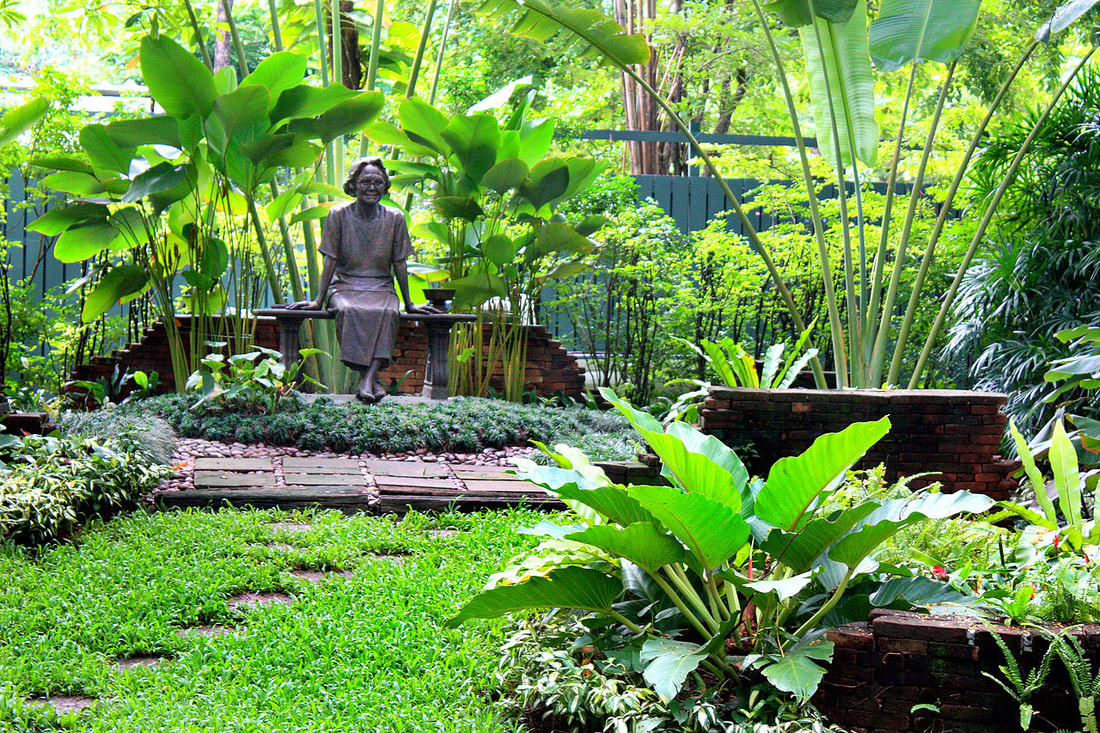
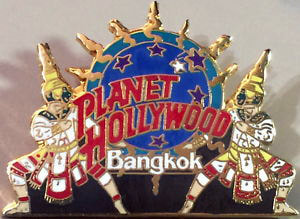
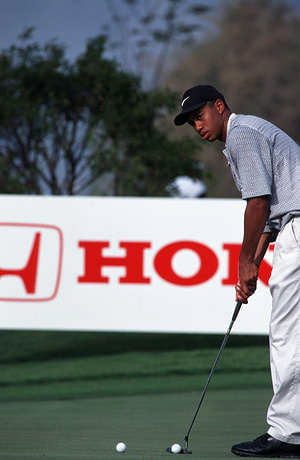
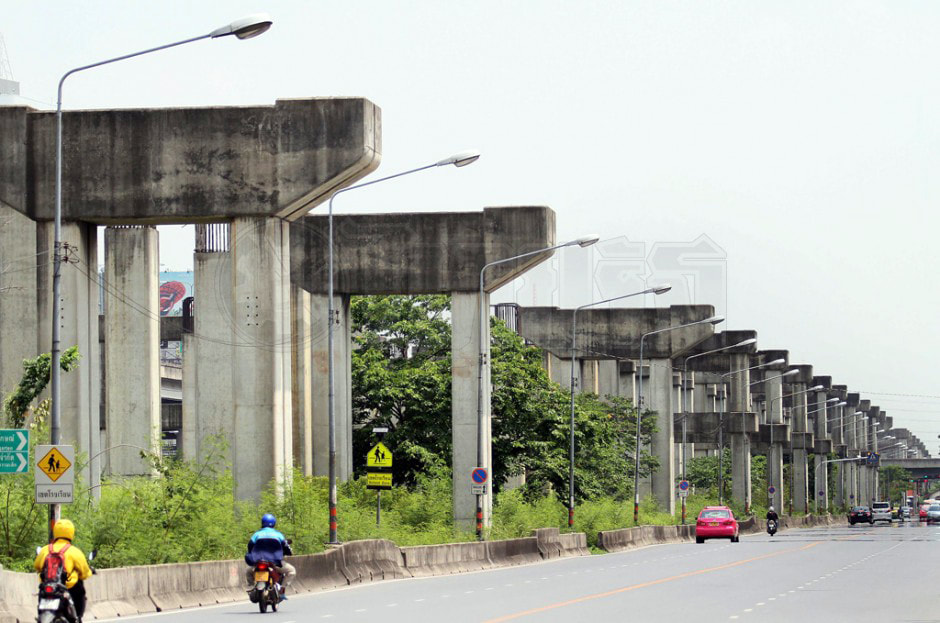
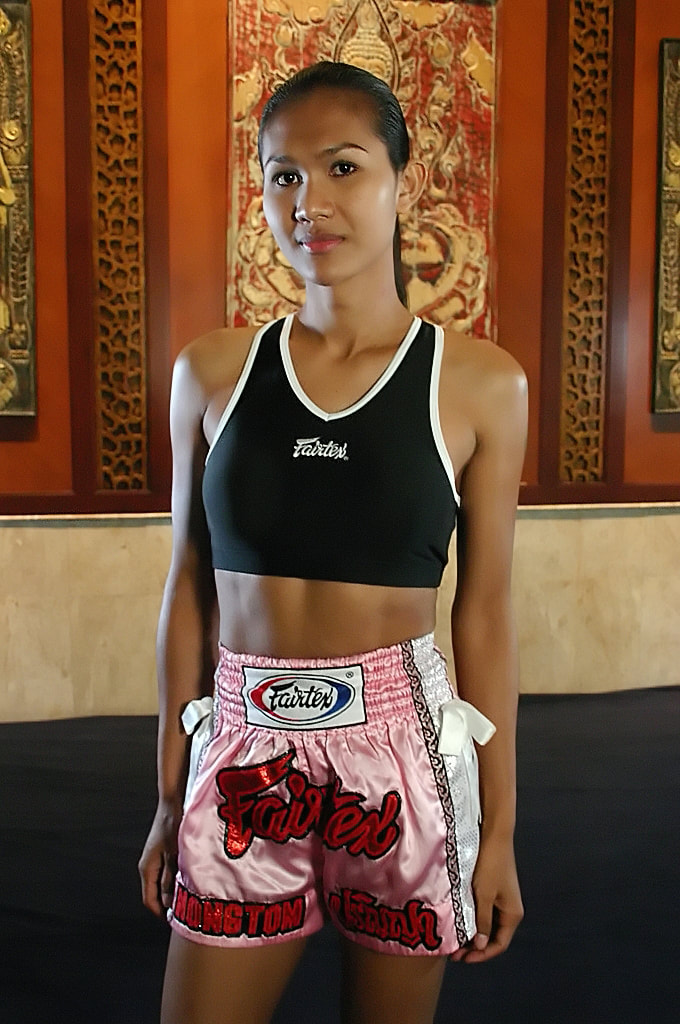
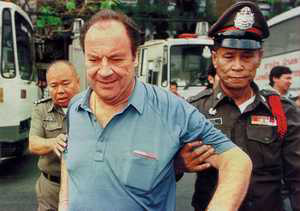
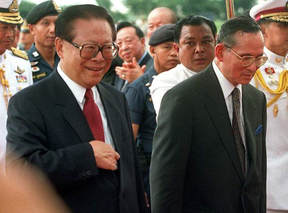
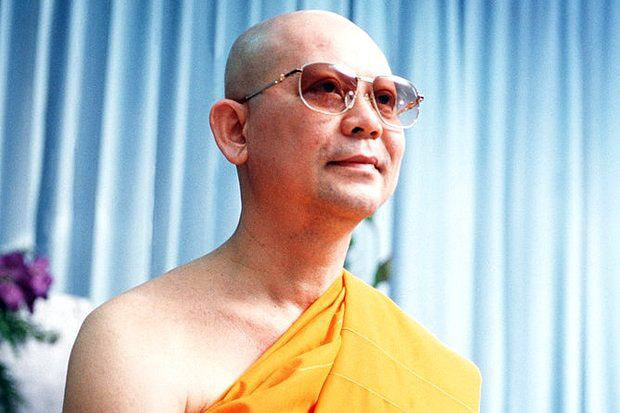
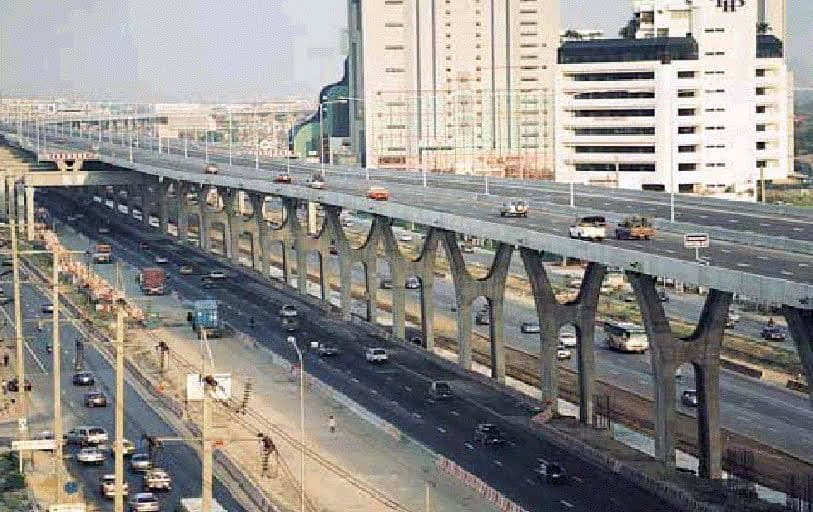
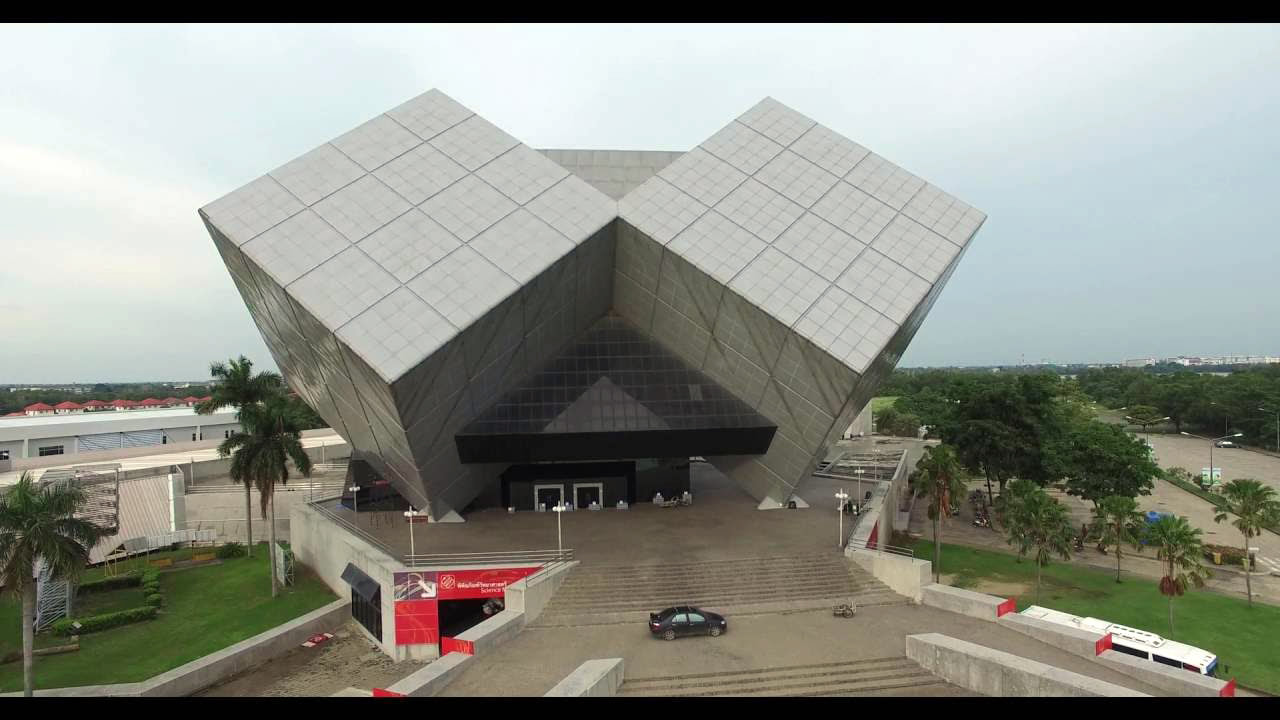
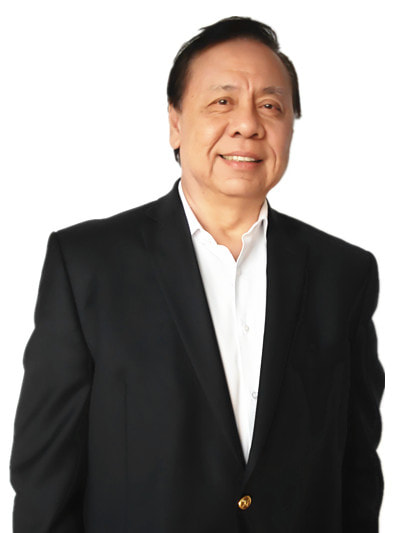
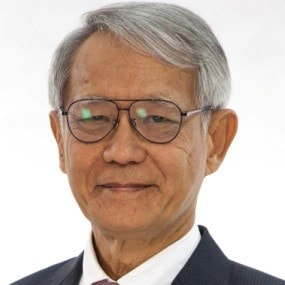
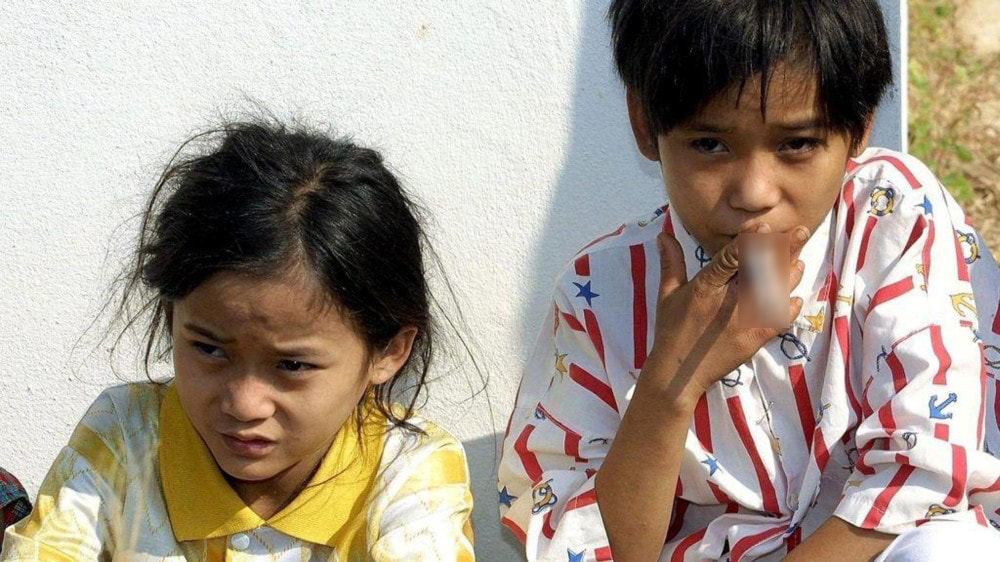
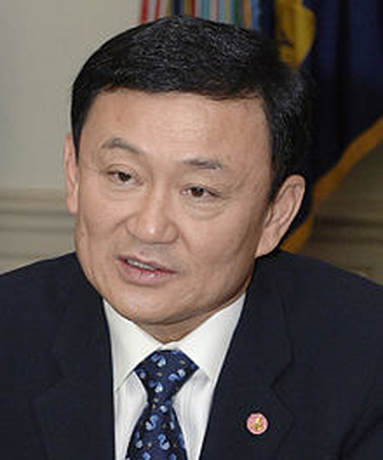

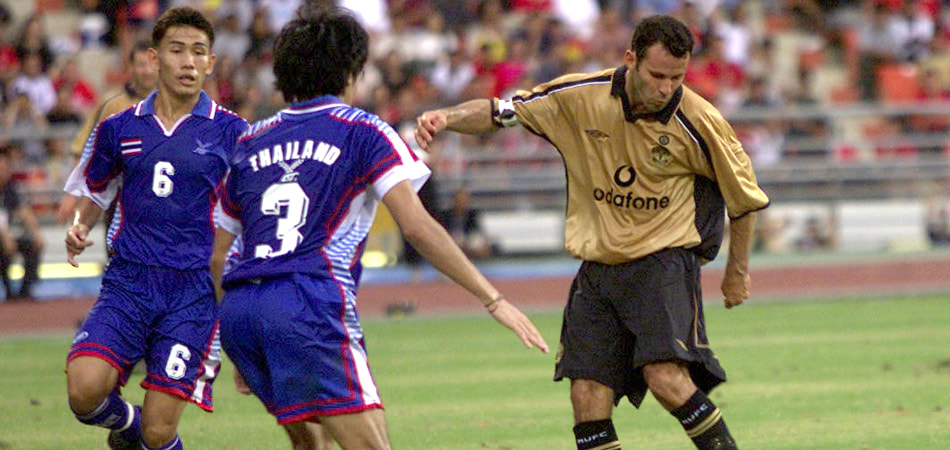
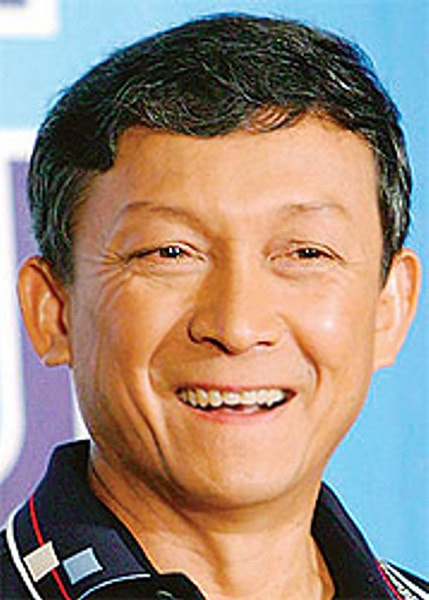
 RSS Feed
RSS Feed
















